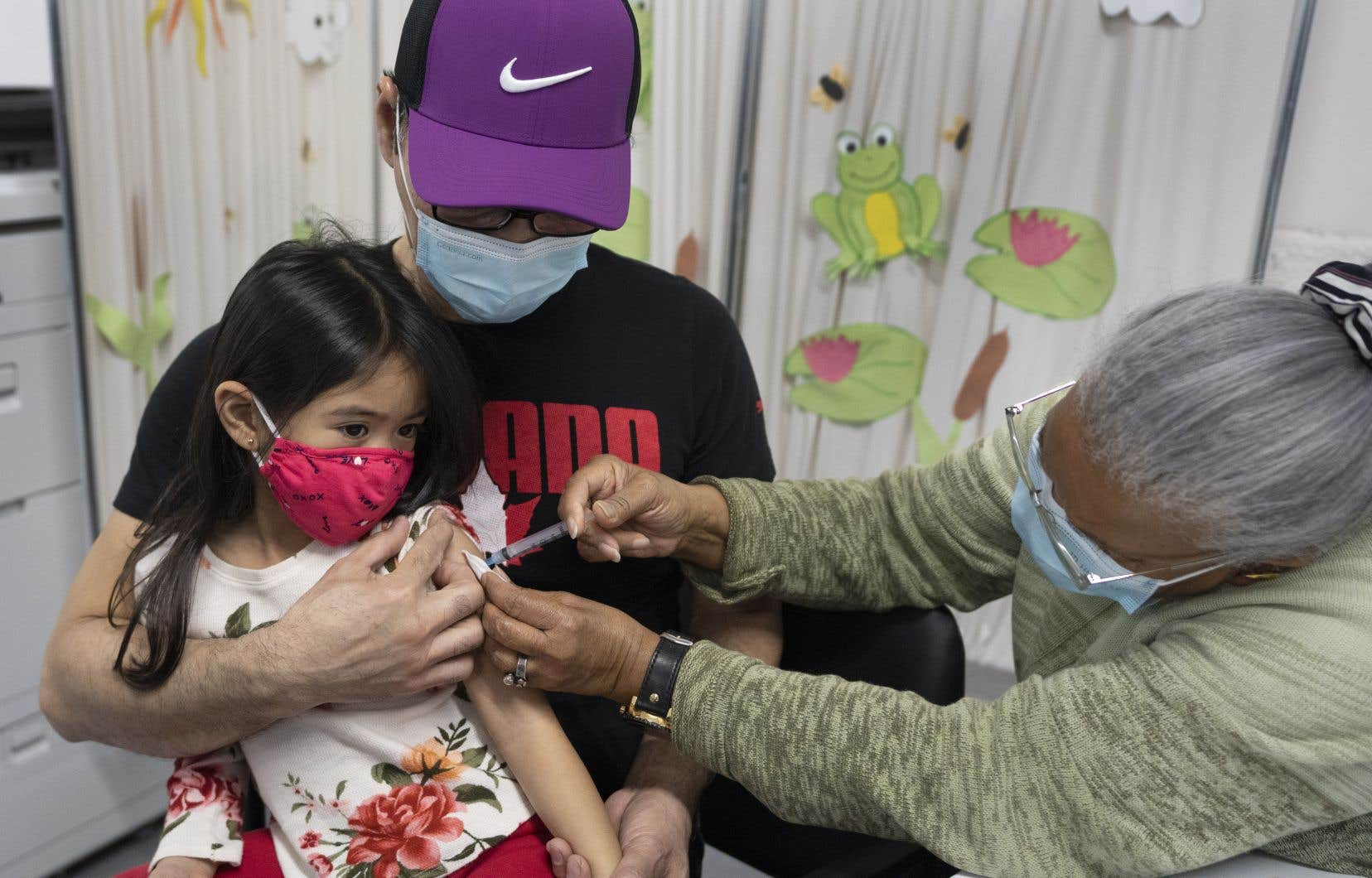Children with asthma, especially those who neglect follow-up treatment, are at greater risk of developing a severe form of COVID-19 that requires hospitalization, according to a study in Scotland and published in Lancet Respiratory Medicine. According to the study authors and the experts consulted, this observation underscores the importance of good asthma control and vaccination of children.
In this population-based study of more than 750,000 children between the ages of 5 and 17, researchers noted that of the 63,000 children with asthma, 6.8% developed COVID-19, of whom 1.5% required hospitalization, while among those who did not With asthma, 5.8% (or less than 1% of those with asthma) had SARS-CoV-2, of which 0.9% required hospitalization.
The researchers also noted that these were children with poorly controlled asthma — that is, those who had been taken to hospital because their symptoms had worsened, or who had been given oral corticosteroids for severe asthma attacks in the two years prior to the study. – who were most likely hospitalized with COVID-19. It was 548 per 100,000 children compared to 94 per 100,000 children among those with well-controlled asthma, and 55 per 100,000 children among those without asthma.
“It is the large number of children (over 750,000) in the study that makes it possible to see emerging signals that seem to indicate that asthma is a risk factor, even if it is not very significant because the number of children affected is very small,” notes Dr. Sze Man Tse, MD, a pediatric pulmonologist at CHU Sainte-Justine.
“This study explains in part why asthma has not generally emerged as a risk factor for the severe form of COVID-19 in some studies, because it is a risk factor that is not really significant. For the proportion of people with asthma, [ceux dont la maladie n’est pas contrôlée] And not necessarily for all asthmatics,” says Dr. Jesse Papenburg, a pediatric microbiologist and infectious disease specialist at Children’s Hospital Montreal.
Dr. Tse recalls that at the start of the epidemic, many feared asthma was a risk factor for COVID-19 given that respiratory viruses, including SARS-CoV-2, cause asthma attacks in children. But as the epidemic progressed and the number of studies involving a few hundred patients increased, that fear diminished because the prevalence of asthma among children hospitalized with COVID-19 was similar to that observed in the general population. Pulmonologists and pediatricians have been made aware of the idea that asthma is not a risk factor in children, she says.
In addition, “far fewer children came to CHU Sainte-Justine and Montreal Children’s Hospital for asthma attacks during the pandemic, through the end of the third wave. But since last June, there are more, possibly due to the removal and recycling of respiratory viruses that health measures have halted. And that resumes with the latter’s relaxation,” says Dr. Tse.
“The Scottish study underscores the importance of good asthma control in children,” says Dr Babenberg.
“The message is that asthma in children should be well controlled. Many parents have noticed that their children’s asthma has improved greatly during the epidemic due to hygiene procedures and the absence of viruses in the circulation. So there are some parents who have stopped treating their children for this reason. But when Children are again exposed to all working viruses, they again become at risk of developing seizures, and it is better to resume daily control therapy, [qui consiste en de petites doses de corticostéroïdes absorbées par inhalation] Dre Tse preaches.
In addition, “We are fortunate that the vaccine is approved for children 5 years of age and older. Parents are encouraged to vaccinate their children with asthma against COVID-19, as well as against influenza, which is more likely to cause hospitalization than COVID-19 in these kids,”
For parents who are reluctant to vaccinate their children, Dr. Tse notes that in terms of the risks associated with the COVID-19 vaccine, the results of the Pfizer studies are very reassuring. Plus, when we look around the world, especially in the United States where more than three million children have received the first dose of the vaccine, we don’t see any worrying signs. The vaccine appears to be harmless,” she says.
As for its benefits, “they are great for the population, and group immunity, because vaccinating children should reduce transmission of the virus. The more children vaccinated there, the more we avoid closing the classroom, and the sooner we can envision a return to normal life.”
Watch the video

“Subtly charming problem solver. Extreme tv enthusiast. Web scholar. Evil beer expert. Music nerd. Food junkie.”

